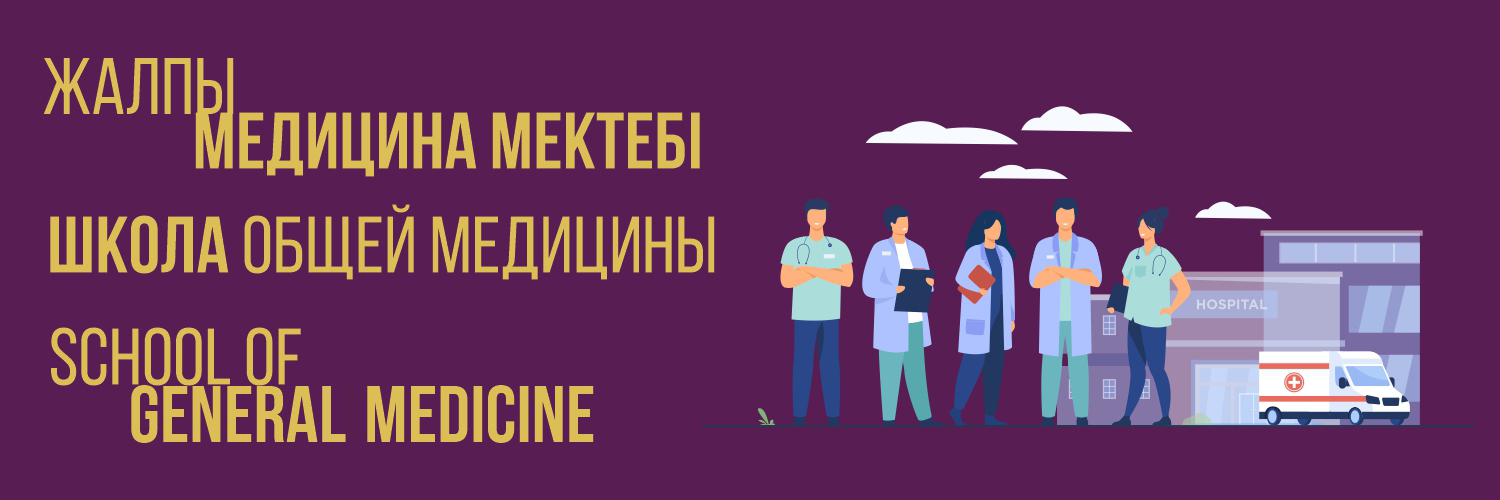Department of Work is based on the strategic plan KazNMU, in accordance with a comprehensive plan that make up the department for all activities.
The educational process is carried out on schedule, and the CLP presented PD KazNMU. Schedule for the discipline has for the past three years. The timetable is composed of studies, approved by the director DEMW. Compiled and posted on the stands timetable, schedule employees, calendar-thematic plan of lectures, workshops, and IWST, IWS.
The content of the standard and work plans, typical and working curricula of specialties, methodical support of the educational process, the maximum amount of student workload comply with the requirements of state educational standards and modern requirements of training;
There are textbooks, and educational – methodical manuals published by the teachers of the department for the last three years, including in the national language, a mini library head of the department. On the missing number of textbooks in Kazakh language the application is filed annually. Any help from the library on the security of students educational literature on the subject. 2nd year student of the Kazakh branch of all specialties are the basic textbook edited by Prof. B.A. Ramazanova and K.Kudaybergenova “Medical Microbiology”, approved in 2010 RSCT MES RK and the Ministry of Health issued in 2011 by the Association of Universities.
Medical microbiology, Virology and Immunology edited by Academician of the Russian Academy of Sciences V.V.Zverev, Professor M.N.Boychenko, translator into Kazakh and executive editor of K.Kudaibergenuly.Moscow, GEOTAR-Media, 2016, volume 2. According to the vocabulary of cases, all the necessary documentation is available. Folders are designed according to the requirements of the QMS. There are methodological recommendations, developments on each topic of lectures, practical classes, SIWT and SIW in all languages of instruction;
The Department is training different types of students:
– 1st-year students of the Faculty of “Nursing”, schools of “General Medicine”, “And Pediatrics.”
– 2nd-year students of the School of “General Medicine”, “Pediatrics”, “Dentistry”, “Pharmacy”, “Public Health”, “Pharmaceutical Production Technology.”
– 3rd-year students of the “General Medicine” and “paediatrics” schools in Kazakh, Russian and English languages. The forms of training at the Department include the linear and cyclic systems of studying. In addition, the Department trains undergraduates and doctoral students in the “Biomedicine” and “Medicine” specialities. Over the past period, two master’s theses have been completed. Currently, four postgraduate students are preparing for the thesis defence.
In the last five years, students in the 3rd year of the speciality “General Medicine” have been studying the integrated elective course “Fundamentals of laboratory diagnostics of venereal diseases and Mycoses” at the Department for the implementation of student-centred training.
Since September 2019, the faculty of the Department has been teaching a new discipline, “Fundamentals of medical parasitology”. Since 2020, microbiological topics have been included in the modular fields “Fundamentals of Preclinical Research”, “Immune Response”, “Infectology”, “Oral Dentistry”, and “Fundamental Medical Sciences” taught in three languages. During the coronavirus infection pandemic, the Department’s teaching staff prepared new educational and methodological material adapted to distance learning.
Since the beginning of the new 2020-2021 academic year, the Department has started working with undergraduates and postgraduates. In this regard, the department staff has created new training content: for undergraduates, “Professionally oriented foreign language”, for postgraduate students’ elective courses “Clinical Research in Medicine” and “Applied research in clinical Medicine.”
The Department uses laboratory equipment and inventory, technical training tools, electronic programs and interactive laboratories, and its animated videos on YouTube (@user-pq3de4cx5x) channel to implement the educational process. At the moment, the number of views is 312,667.
Educational content is presented on the Moodle and Microsoft Teams platforms. Syllabuses of all specialities have criteria and rules for evaluating current, intermediate (boundary), and absolute control. Competencies are evaluated:
- Knowledge and understanding
- The application of knowledge and experience
- The formation of judgments
- Learning or learning abilities and communication abilities
A point—rating system is used to assess knowledge at the Department, as in the whole university.
Individual work plans for teachers are available. They reflect all kinds of work: training, teaching, research, educational and organizational. All individual plans are completed and signed by the head department.
Electronic logs of training sessions are filled in according to the rules of filling educational journals. The department meetings are held according to the plans approved at the beginning of the academic year. The department prepares annual reports on all types of activities, which are submitted to the dean’s office of the School of General Medicine -1.
